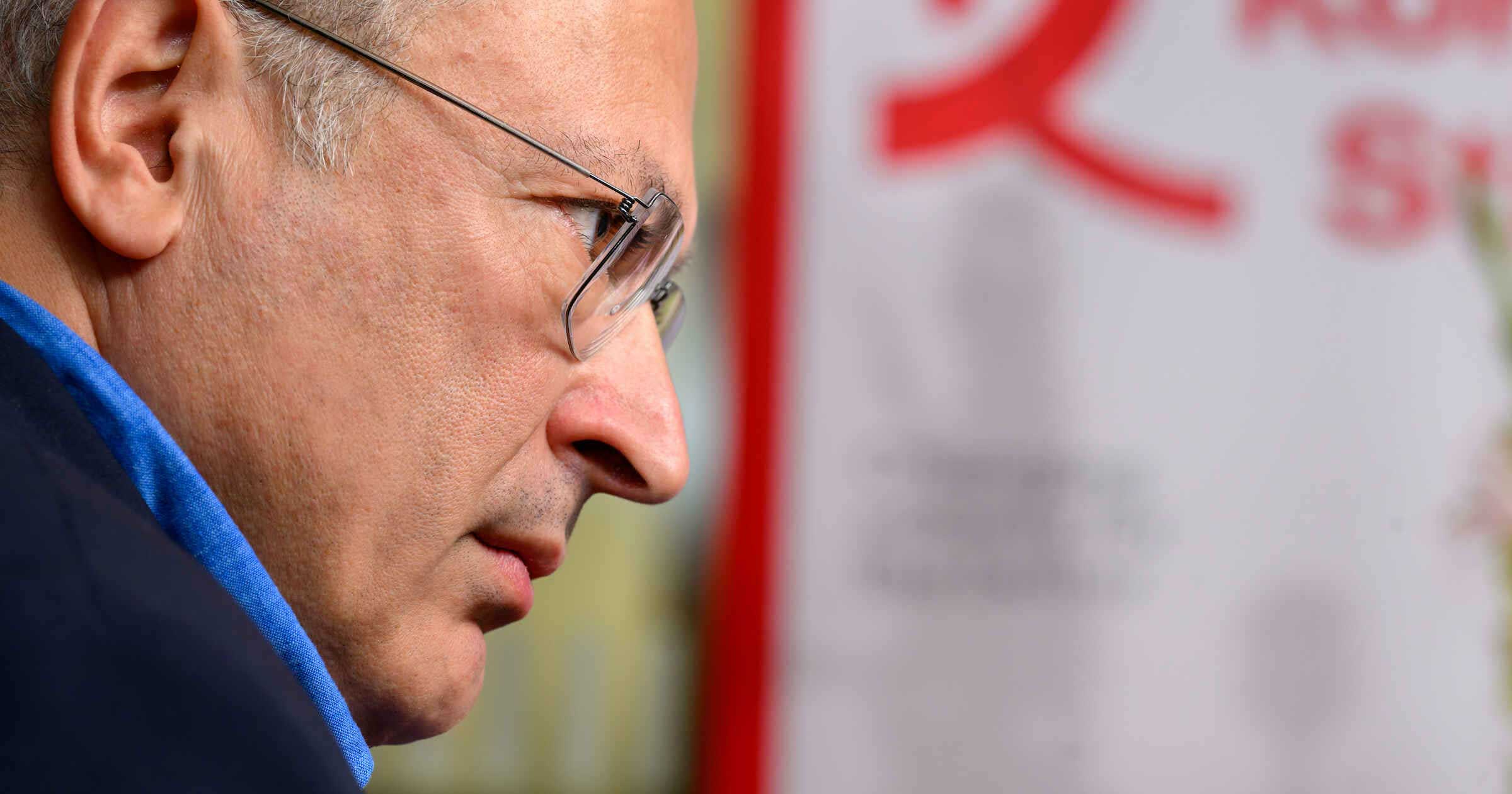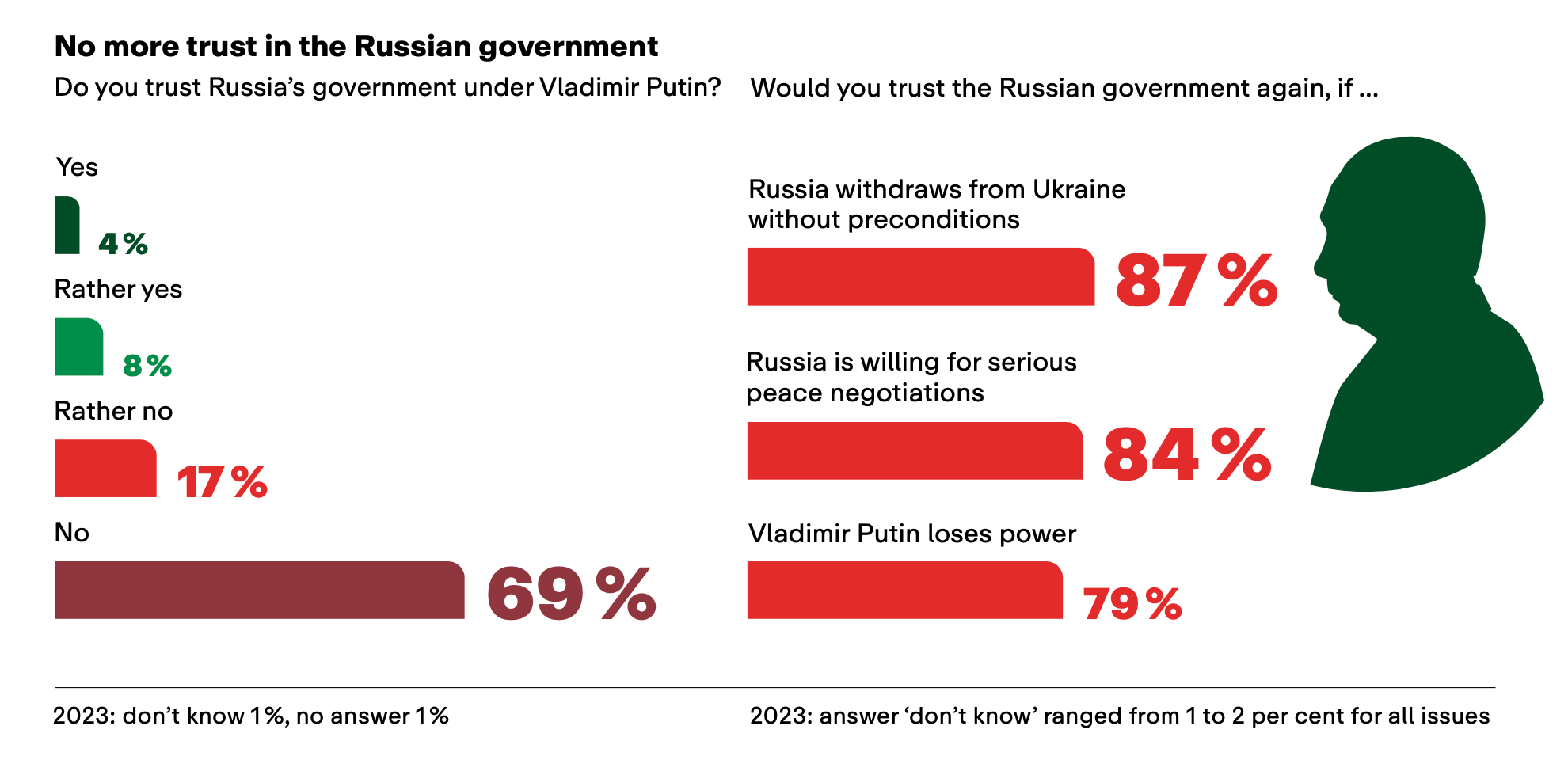Democracy in Russia Is Possible
How Russia can shift power from the rule of the strongest to the rule of law

By Mikhail Khodorkovsky
Vladimir Putin’s war against Ukraine demonstrates that his regime is doomed to fall. Whether it will fall in a year or five is impossible to predict, but his war has unleashed forces that will bring this about. The question is whether a power shift towards the rule of law is possible and whether the democratic opposition will be prepared for it. We must face up to the hard reality that peaceful demonstrations alone cannot succeed against Putin’s brutal regime. This means that he will not be replaced through the ballot box or peaceful protest.
Therefore, I saw an opportunity in Yevgeny Prigozhin’s attempted coup. Not out of any fondness for a man who, like Putin, was a gangster and a murderer. But his mutiny provided the kind of crisis essential for toppling the regime. The assassina tion of Prigozhin and his associates shows how widespread dissatisfaction with Putin is within the military and how weak the regime feels, as it felt unable to put the insurgents on trial. Change will only be possible by exploiting such splits within the regime.
Splits are likely to occur again, and the demo cratic opposition needs to be prepared for that as ‘nationalpatriots’ like Prigozhin will not deliver democratisation and the rule of law. We must therefore depose the regime and then be ready to defend our democratic interests. Acknowledging and accepting this is essential for any serious strategy for regime change.
The break-up of Russia would be an enormous mistake.’
Toppling Putin is a prerequisite for a democratic change, but we also need a vision of what comes next. The breakup of Russia would be an enor mous mistake. The states that would emerge would inherit nuclear weapons and be ruled by local thugs like Chechnya’s Ramzan Kadyrov. A totalitar ian figure could emerge, determined to rebuild the Russian empire, and the resulting militaristic, expansionist entity would again turn its grievances against Ukraine and the West.
But Putin should not be replaced by a ‘good tsar’ either. Another strongman with centralized power would mean the inevitable continuation of cor ruption, stagnation and repression at home as well as expansionist aggression abroad.
I therefore advocate a democratic, federal parlia mentary republic. We need a federal structure that is empowered by the regions rather than a system in which a strong tsar at the centre enables petty tsars on the periphery.
One of the biggest losses to Putin’s regime has been the exodus of many of Russia’s best and bright est. But exiles provide a cadre of potential revolu tionaries who, no longer under the repression of a police state, will be better able to build Russia’s future democratic governance. Therefore, the opposition abroad needs to be recognized as a political representative of at least the antiPutin and antiwar part of Russian society. This would help oppositionminded Russians find one voice and would signal an alternative centre of power. Ger many should provide consistent backing for the creation of a coalition of Russian opposition forces, instead of driving them to remain in separate groups as they compete for support funds.
A selective lifting of sanctions could incentivize struggle against the regime.
To empower Russia’s democratic opposition, the West also needs to be smarter in its application of sanctions. We need a predictable mechanism for the introduction and removal of personal sanctions. A selective lifting of sanctions via granting of visas, banking services and free ownership of assets could incentivize struggle against the regime. At the same time, there should be zero tolerance towards Russians who want to live in European countries but refuse to dissociate themselves from Putin’s regime. This is simply dangerous, as it implies their dependence on the regime and their likely willingness to be its tool.
I believe that not discriminating against Russian citizens who have distanced themselves from the Putin regime would undermine some of the Kremlin propaganda and help to drive an additional segment of Russian society away from the regime.
No wall can isolate Russia
Given its longstanding and deep ties with Russian society, Germany could play a greater role in shap ing European policy and influencing US policy regarding their vision of Russia’s future and prac tical steps, including building relationships with regional elites, the military and part of the bureau cracy. Germany needs to realize that Russia is inextricably linked to Europe and that there is no wall in the world today that can isolate it. Russia will always be a major problem or part of the solution to Europe’s existing challenges.
In Berlin, in April 2023, many members of the Russian opposition signed the Declaration of the Russian Democratic Forces and called on the West to work with us. Cracking down on the Putin regime is vital but so too is supporting those within Russian society who reject the regime’s imperialism and seek to replace it with a democratic alternative.
A lawbased, democratic Russia is possible, but we can no longer be fainthearted about the steps required to achieve it.

Published originally in The Berlin Pulse (by Körber-Stiftung)



